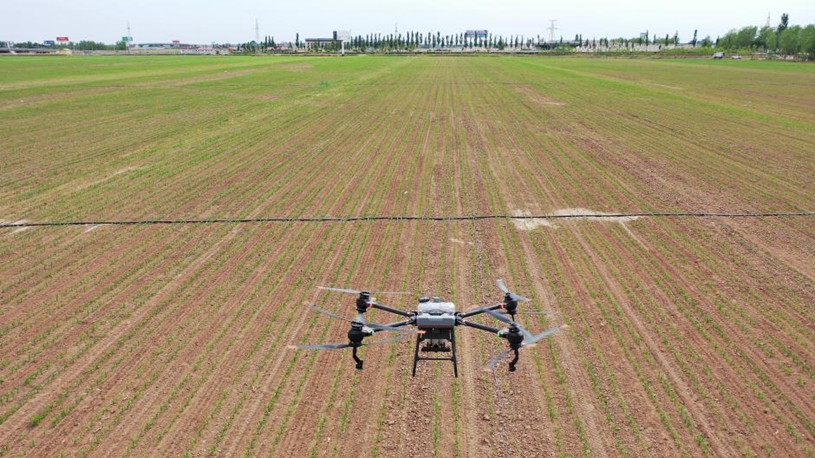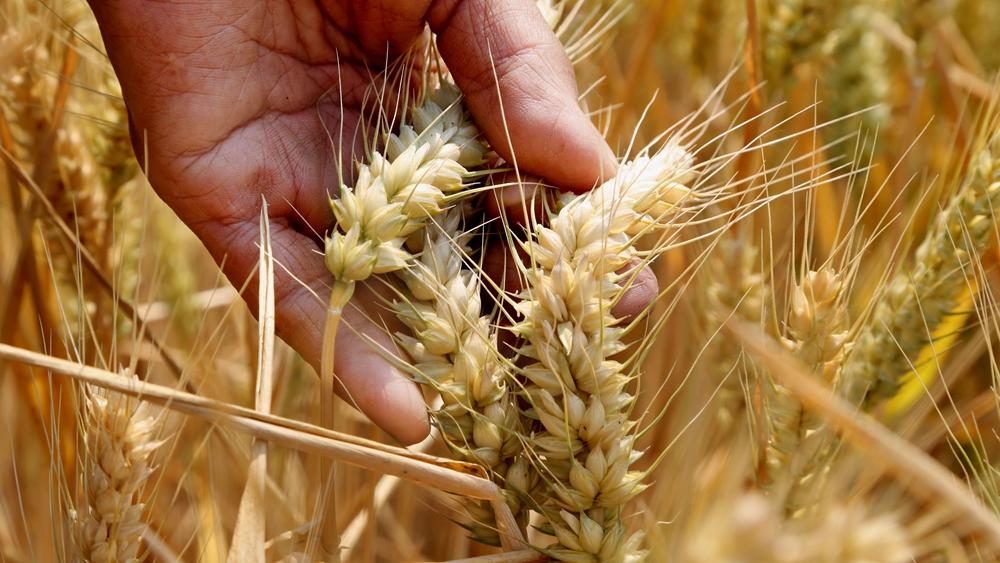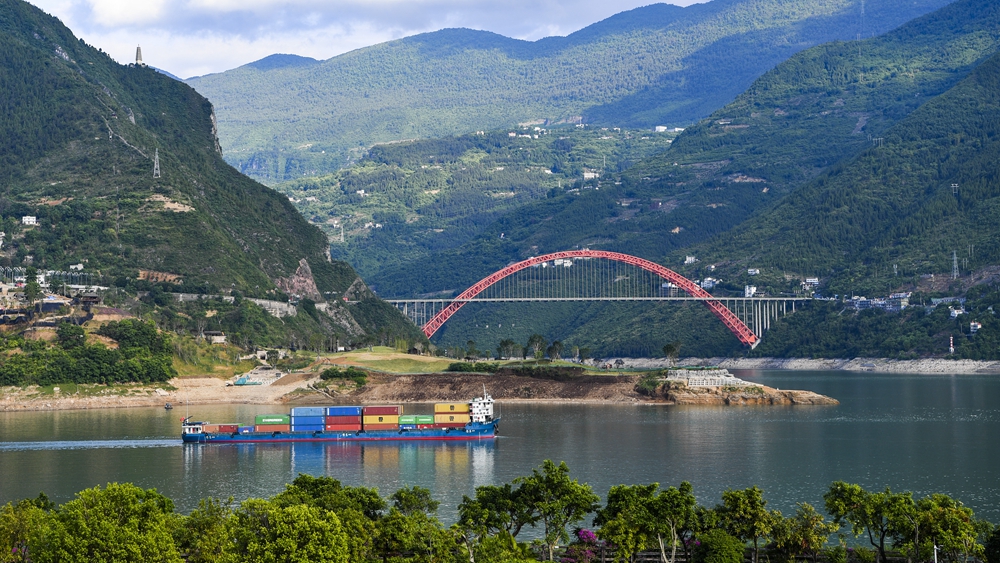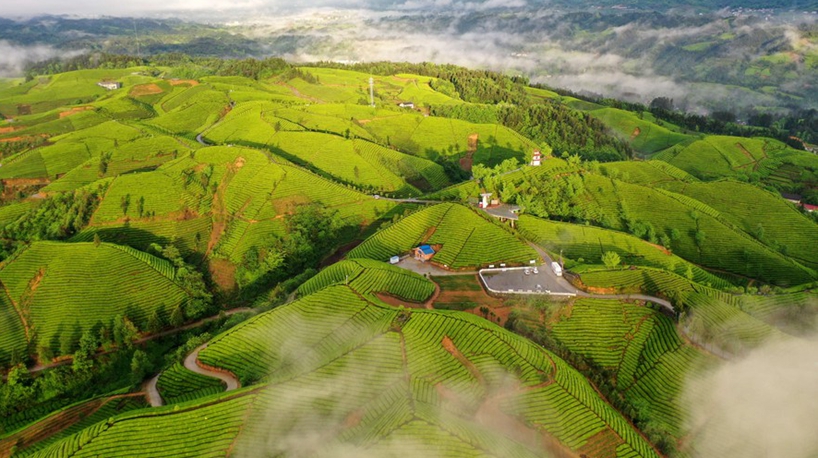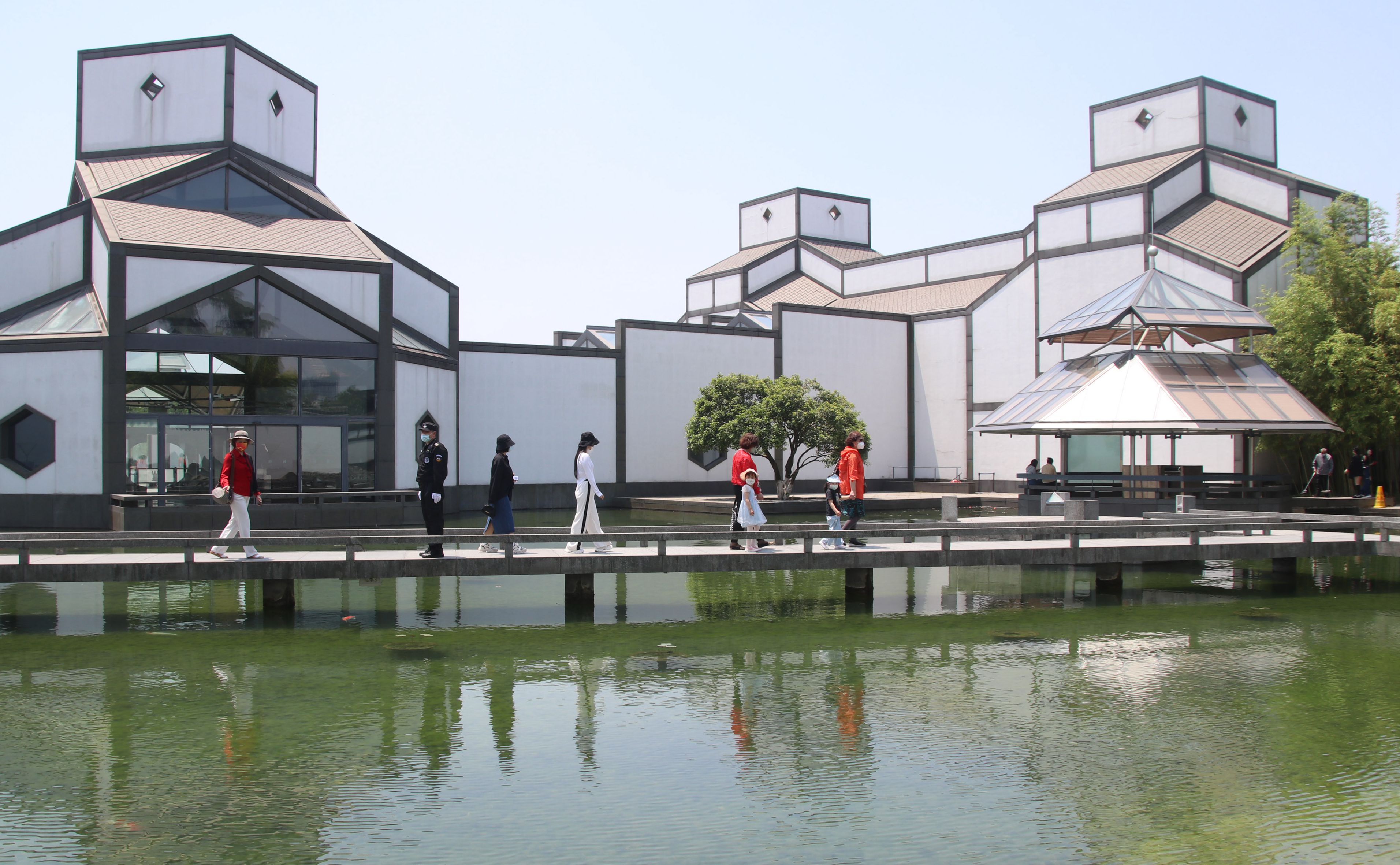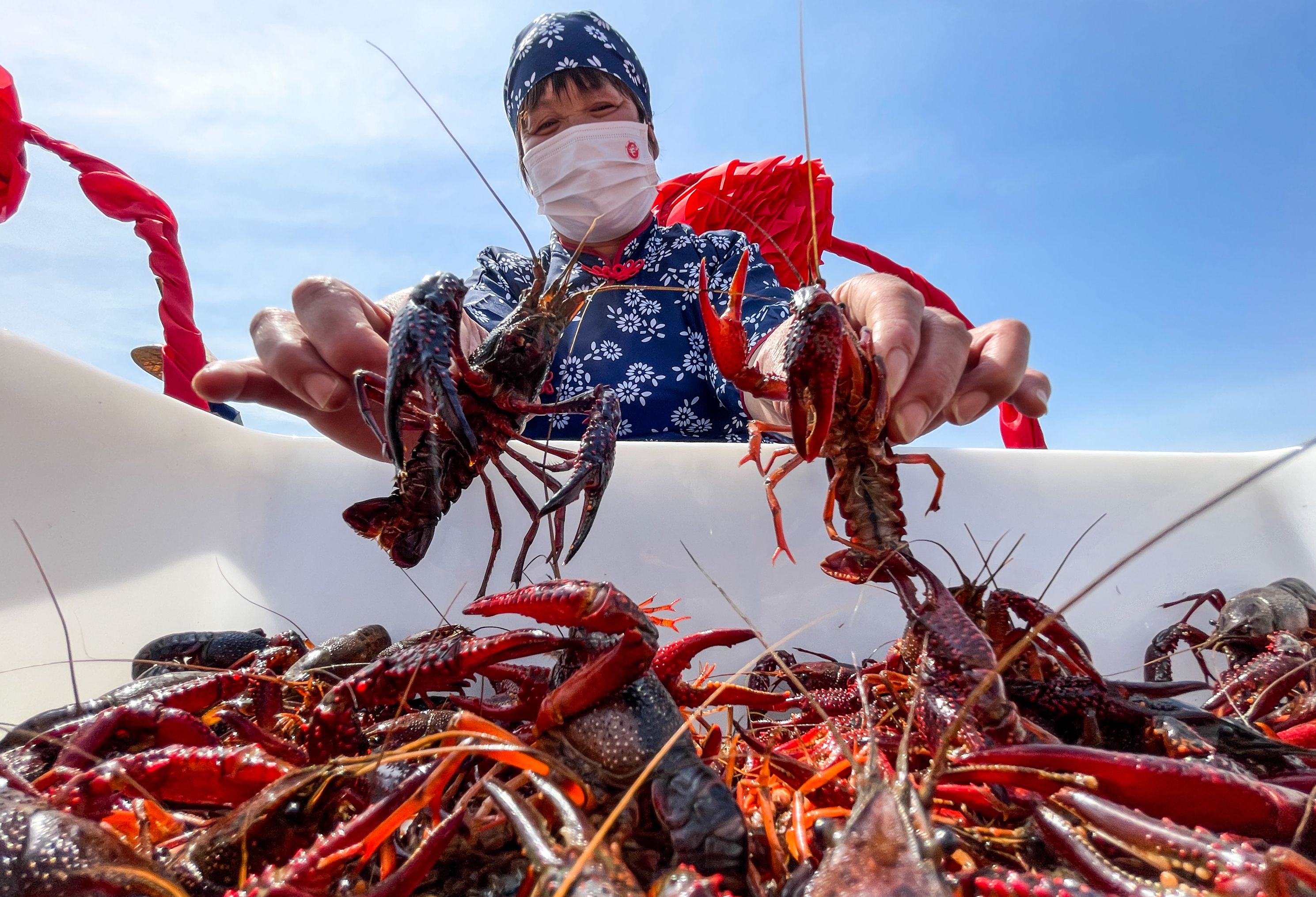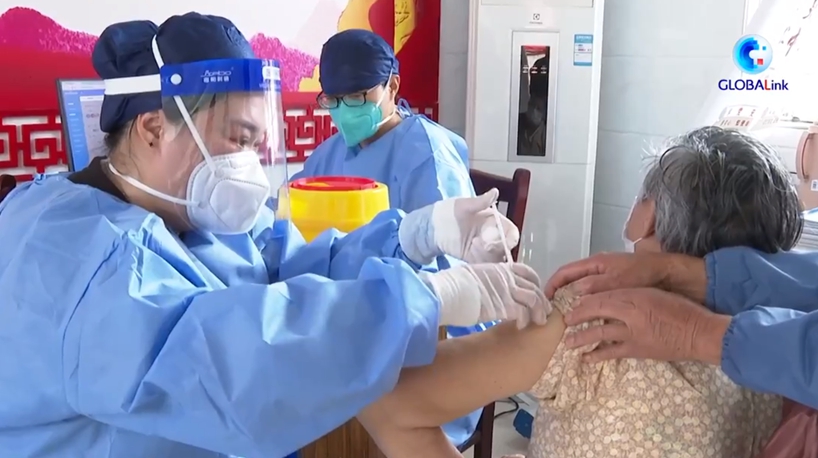* In such a time when peace and development are so desperately needed, the U.S.-led Western countries delivered lethal weapons to Ukraine and imposed sanctions on Russia, risking perpetuating the regional conflict but leaving the world to foot the bill.
* Energy choke and the ensuing supply chain disruptions have added pressure to the world economy, especially the European economy.
* Given the economic weight of Russia and Ukraine in the world, the longer the crisis lasts, the harder the global economy can heal its COVID-19 pandemic wounds.
BEIJING, May 30 (Xinhua) -- The months-long Russia-Ukraine crisis has shown no signs of abating, as the talks between Moscow and Kiev have frequently been frustrated.
Given the economic weight of Russia and Ukraine in the world, notably the production of energy and grains, the longer the crisis lasts, the harder the global economy can heal its COVID-19 pandemic wounds.
However, in such a time when peace and development are so desperately needed, the U.S.-led Western countries delivered batches of lethal weapons to Ukraine and imposed bunches of sanctions on Russia, risking perpetuating the regional conflict but leaving the world to foot the bill.
ENERGY SECURITY THREATENED
Russia's energy export has borne the brunt of Western sanctions. On March 8, the United States announced an embargo on Russian oil, liquified natural gas and coal, followed by an EU ban on Russian coal from August, part of its fifth package of sanctions against Russia released on April 8, and a proposed embargo on Russian oil brought forward by the European Commission in early May as part of its sixth sanction package.
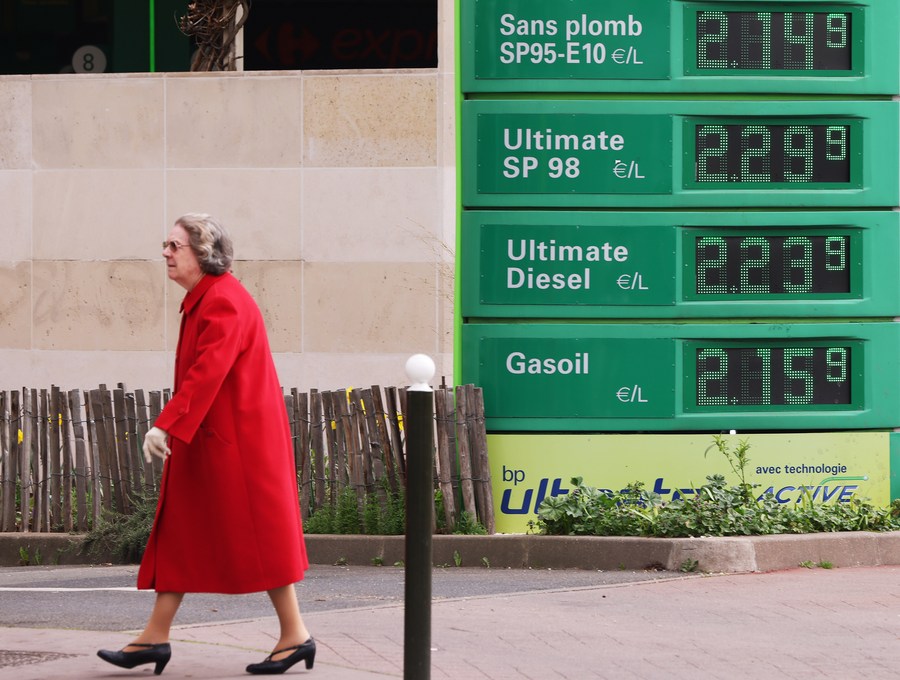
Fuel prices are displayed at a gas station in Paris, France, March 16, 2022. (Xinhua/Gao Jing)
But the mounting sanctions against Russia and the tendency to perpetuate them are actually hurting global energy security, as Russia, a major player in the global energy market, accounts for approximately 18 percent, 11 percent and 10 percent of the global coal, oil and natural gas export volumes, respectively.
Energy choke and the ensuing supply chain disruptions have added pressure to the world economy, especially the European economy.
Russia annually sent 155 billion cubic meters of natural gas to Europe before the conflict, and replacing a significant portion of this "will be exceedingly difficult, with far-reaching consequences for Europe's population, economy, and for the role of gas in the region's energy transition," said the Oslo-headquartered energy research and business intelligence company Rystad Energy in a press release on May 9.
Russian gas supplier Gazprom announced on April 27 that it was fully stopping its gas deliveries to Poland and Bulgaria, due to the two EU member states' "failure to pay in rubles," leading to a 20-percent surge in European gas prices.
The fluctuating and rocketing prices and energy inflation have an exacerbating impact on the global economy and livelihood, as several institutions have forecast international energy prices to remain high for years to come.
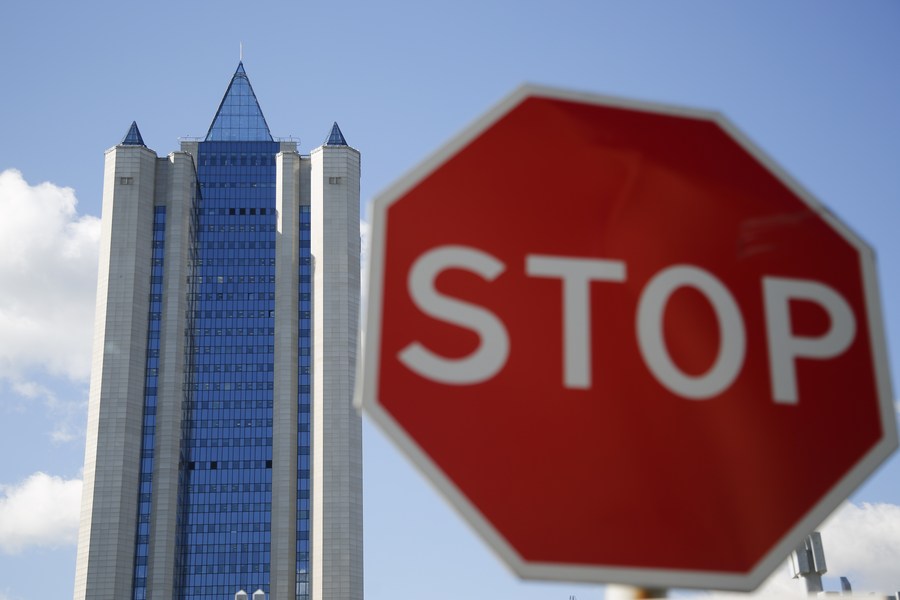
Photo taken on April 28, 2022 shows the office of Russia's energy giant Gazprom in Moscow, Russia. (Photo by Alexander Zemlianichenko Jr/Xinhua)
The World Bank said in a report on April 26 that the increase in energy prices over the past two years has been the largest since the 1973 oil crisis, and estimated that energy prices are expected to rise more than 50 percent in 2022 before easing in 2023 and 2024.
The eurozone's economic growth slowed in the first quarter, as inflation hit a record high in April, with energy prices up 38 percent on an annual basis, becoming a main contributor to the inflation rate. The European Commission projected that the eurozone's pandemic recovery would almost grind to a halt, while prices would surge even more quickly if there are serious disruptions to natural gas supplies from Russia.
The United States, however, has cashed in on the Russia-EU standoff. Washington announced on March 25 that it will provide an additional at least 15 billion cubic meters of liquified natural gas (LNG) for the EU in 2022. That means a two-thirds increase in its LNG export to the bloc.
FOOD CRISIS LOOMS
As Russia and Ukraine play a substantial role in global food production and supply, a prolonged conflict between the two countries would pose major threats to global food security.
UN World Food Program Executive Director David Beasley has warned that the Russia-Ukraine conflict was "a catastrophe on top of a catastrophe" and would have a global impact "beyond anything we've seen since World War II."
According to the UN Food and Agriculture Organization (FAO), Russia and Ukraine are the world's largest and fifth-largest wheat exporters, respectively. Together, they provide 19 percent of the world's barley supply, 14 percent of wheat and 4 percent of maize, making up more than one third of global cereal exports.
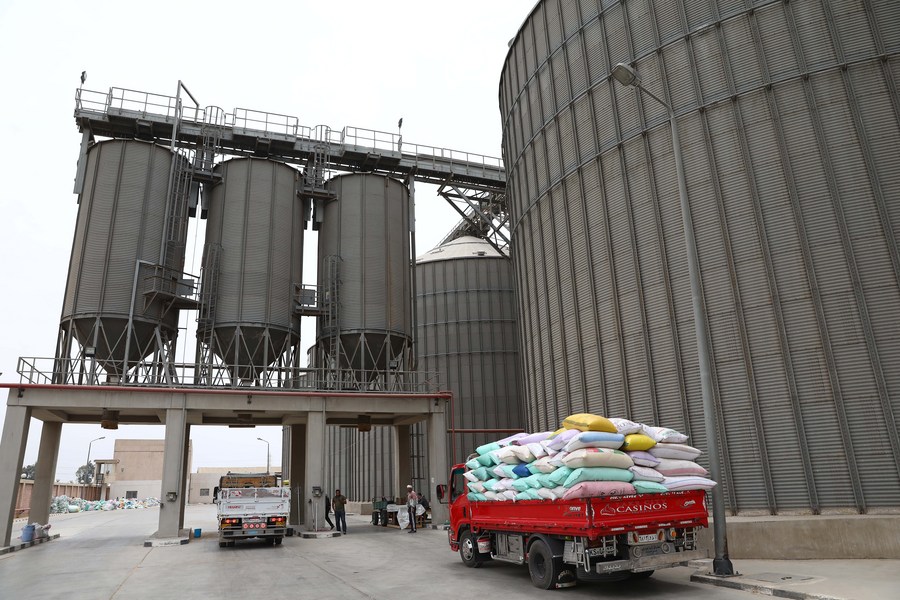
Vehicles loaded with wheat are seen at a grain silo in Banha of Qalyubia Governorate, Egypt, on May 16, 2022. (Xinhua/Ahmed Gomaa)
In Ukraine, known as the breadbasket of Europe, the conflict has left wheat planted months ago unharvested, while maize and sunflowers sown when the conflict broke out missed application of fertilizers. It is estimated that Ukraine's grain production may fall by more than 50 percent in the current season.
Moreover, Russia is the lead producer of fertilizers, accounting for 13 percent of the world's production. Restrictions on Russian fertilizer exports due to the U.S. sanctions have led to a surge in global fertilizer prices, forcing farmers in Brazil, the United States and other major agricultural countries to reduce the use of fertilizer, which could affect future harvests.
Food prices have reached an all-time high, as Russian and Ukrainian grain exports are hindered by port disruptions and Western sanctions.
In some European countries, necessities such as flour, cooking oil and canned vegetables are sold in limited quantities.
Less developed areas face even worse conditions. Wheat is a staple food for over 35 percent of the world's population, and Egypt, Turkey, Bangladesh, and Iran are the top global wheat importers, buying more than 60 percent of their wheat from Russia and Ukraine.
Some 50 countries are highly dependent on supplies from Russia and Ukraine, many of which are least developed countries or low-income, food-deficit countries in Africa and Asia, said FAO Director-General Qu Dongyu.
In response to domestic supply shortages and rising food prices, many countries resorted to protectionism and slammed export controls, further fueling the global food inflation and worsening the food crisis.
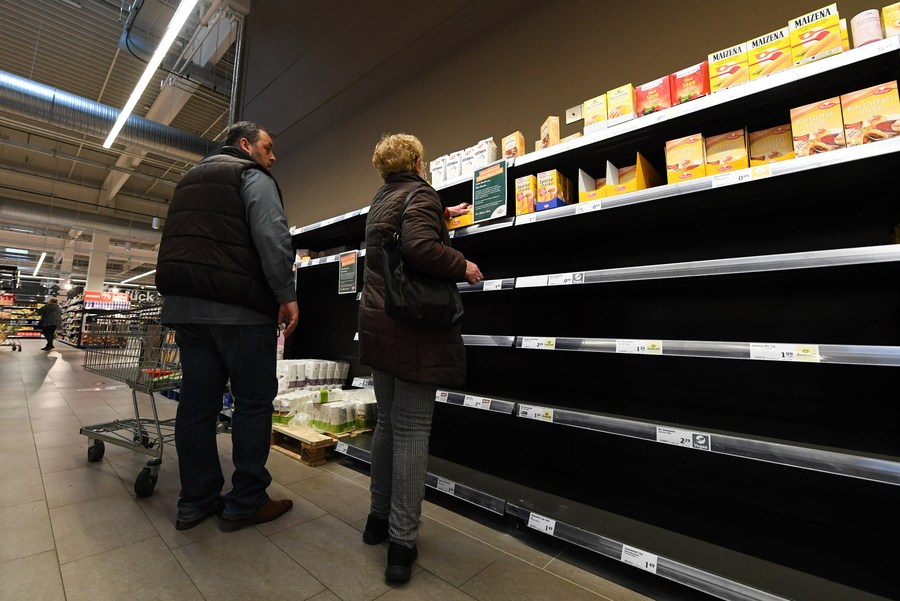
Customers shop at a supermarket in Frankfurt, Germany, April 22, 2022. (Xinhua/Lu Yang)
Since the Russia-Ukraine conflict started in February, the number of countries imposing export restrictions on food and fertilizer products had rose to 23 as of late April, according to the International Food Policy Research Institute. Indonesia, the world's largest palm oil producer, and India, the world's second-largest wheat producer, announced export suspensions in April and May respectively.
World Bank East Asia and Pacific Chief Economist Aaditya Mattoo said export restrictions are an example of prisoners' dilemma, "where you take action which seems to be in your own interest, but makes everyone including yourself worse."
RISK OF SOCIAL UNREST
Food and energy are vital to the national economy and people's livelihood, and the social risks brought by their impact should not be underestimated.
"Sharply higher prices for staples and supply shortages are increasing pressure on households worldwide and pushing millions more into poverty," the World Bank, International Monetary Fund, UN World Food Program and World Trade Organization said a joint statement released in April.
The fallout from the prolonged pandemic and the Russia-Ukraine crisis has dealt a heavy blow to Sri Lanka, a country for months suffering from food shortages, rising commodity prices, power cuts and currency depreciation, sparking mass protests and forcing its president to declare a state of emergency twice -- in April and May.
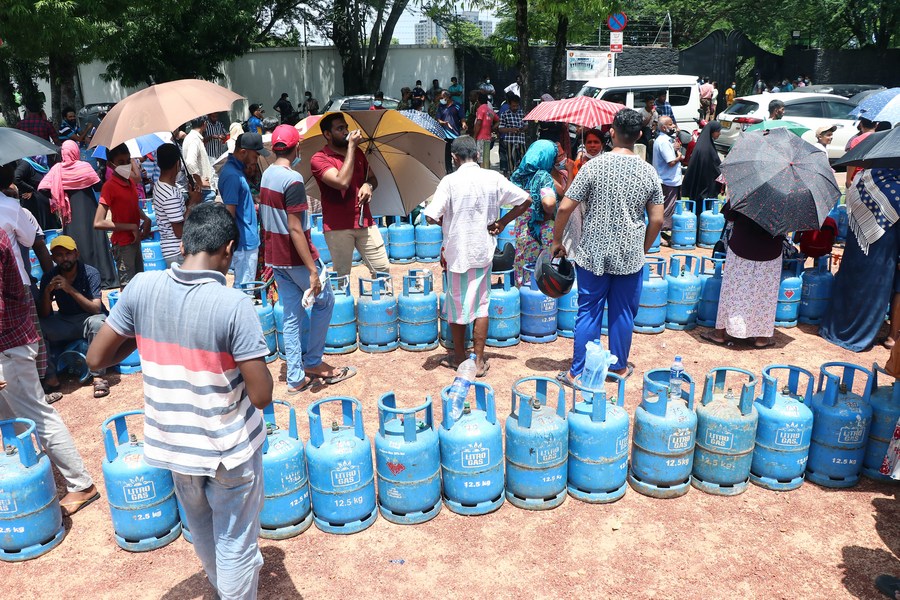
People wait with empty gas cylinders in Maradana, a suburb of Colombo, Sri Lanka, on May 20, 2022. (Photo by Ajith Perera/Xinhua)
Concern for the situation in Africa is growing. UN Secretary-General Antonio Guterres said in early May that the Russia-Ukraine conflict "aggravates a triple crisis: food, energy and financial" across Africa.
Even relatively rich Europe is also haunted by the possibility that a livelihood crisis might deteriorate into social unrest. In Barcelona, Spain, the taxi drivers' trade association and the Spanish truck drivers' union organized demonstrations and strikes to protest against fuel price increases, which temporarily disrupted supplies of goods and raw materials.
In recent months, international organizations and institutions have lowered their forecasts for global economic and trade growth and other key indicators. (Video reporters: Li Cheng, Liu Chang, Chen Hao, Wang Huan, Jiang Chao, Ali Jaswal, Tariq Hameed, Attila Volgyi, James Asande, Zack, Wang Jian; video editors: Peng Ying, Wei Yin)■

